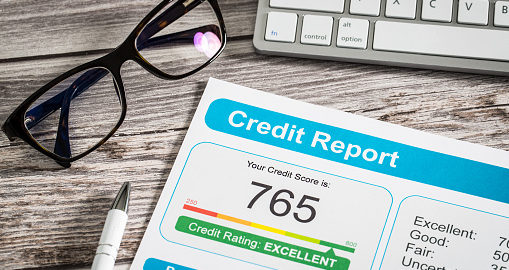You’ve probably heard the term “credit score” before – especially if you’ve purchased a car, applied for a mortgage, etc. But, what exactly is a credit score? They’re used to assess risk and determine whether a borrower is approved or declined for a mortgage, credit card or some other type of credit. The score is a numerical value ranging from a low of zero to a high of 850 or 900 depending on the credit bureau.
If the score is higher, then lender is more likely going to be repaid in a timely manner. And that is what they tend to look for in regards to approving you for a loan.
Here are some facts on credit scores:
- A higher credit score could help you get a lower interest rate
- You can get a free credit report from all three major bureaus at www.AnnualCreditReport.com.
- Your credit score doesn’t have to be perfect to get a loan … most lenders want buyers to have a minimum of 620 but FHA will consider as low as 500
- Credit utilization, the percentage of credit used compared to what is available, should be kept below 30%; amounts higher could negatively affect your credit score.
- There is a difference between a soft and a hard credit pull. A soft credit pull doesn’t hurt your score, but the hard credit pull can lower it a few points. Try to avoid multiple hard inquiries.
- Credit cards, bank loans, car loans and home loans are considered “good credit” and a mixture of different types is helpful compared to only a car loan.
- Opening new credit accounts after you apply for a mortgage can hurt or even prevent you from being approved on the mortgage. This is something that I also tell all of my buyers. You’ll want to avoid this!
A credit score is comprised of five components. Those are payment history (35%), amounts owed (30%), length of credit history (15%), new credit (10%) and credit mix (10%. If you didn’t notice, 35% of the weighted average is determined by payment history (paying on time). The length of your credit history is just as important, as are all of the other factors.
One thing you will want to avoid is opening several accounts (credit card accounts, etc), at one time. Opening several accounts in a relatively close period will negatively affect your score. While it isn’t necessary to have all types of credit like credit cards, installment loans, finance company accounts and mortgage loans, the types of credit in the mix are evaluated.
If you’d like some help increasing your score, a trusted lender that provides your pre-approval can also make suggestions that would improve your credit. Contact your real estate professional to get a personal recommendation of a trusted mortgage lender.
I can provide Insider Information on Fairfax VA homes for sale. Get you a FREE Market Snapshot Report of Your Northern Virginia Home’s Value, or Search All Northern Virginia Homes For Sale. Put that data you need at the tips of your fingers!


